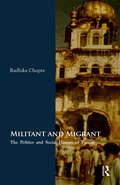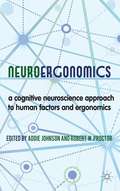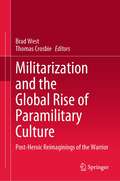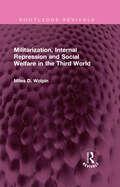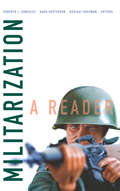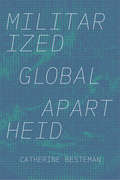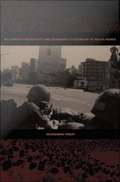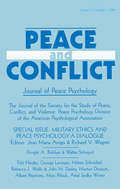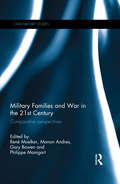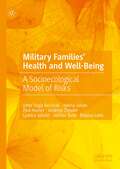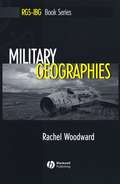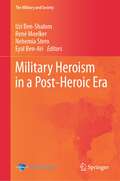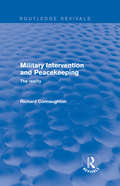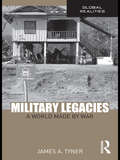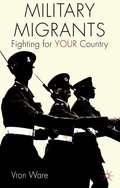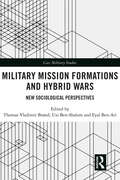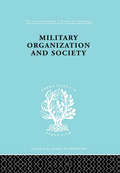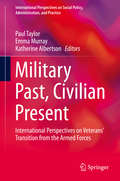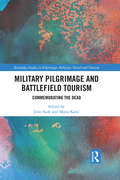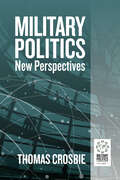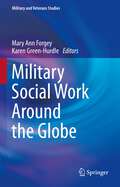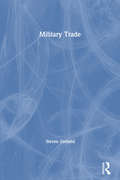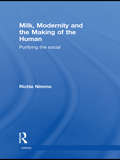- Table View
- List View
Militant and Migrant: The Politics and Social History of Punjab
by Radhika ChopraThis book is a study of the transformations in Punjab created by biotechnological revolutions, economic restructuring, persistent migrations, and political upheaval in the late 20th century. The sacred centre at Amritsar, the transnational settlement of Southall and a Doaba village form the terrain for this — three sites that can seen as metonymic spaces of identity that transcend geographic boundaries, and form the structure of this book. Relations between the rural, the sacred and the transnational, fostered through migration, marriage and material exchange, existed well before 1984. After 1984, however, and through the violent decades of the militancy period, these three locations became connected via the circulation of political ideologies, violent deaths, financial aid, a sense of disaffection, and the migration of men. Analysis of the linkages between transnational migration and religious revival is a key theme of this study. Conversely, the enhanced engagements of the diaspora with homeland politics became a source of support and created sanctuary spaces for political asylum seekers and transnational migrant labour. Re-analysing existing material and drawing on fieldwork-based interviews, as well as local history archives, the book presents a different framework to analyse the politics and social history of Punjab.
Militarism and the British Left, 1902–1914: 1902-1914
by Matthew JohnsonMilitarism has traditionally been regarded as a phenomenon of the political right. As this book demonstrates, however, various groups on the political left in Britain during the years before the Great War were able to accommodate, and even assimilate, militaristic ideas, sentiments, and policies to a remarkable degree.
Militarization and the Global Rise of Paramilitary Culture: Post-Heroic Reimaginings of the Warrior
by Brad West Thomas CrosbieThis edited book demonstrates a new multidimensional comprehension of the relationship between war, the military and civil society by exploring the global rise of paramilitary culture. Moving beyond binary understandings that inform the militarization of culture thesis and examining various national and cultural contexts, the collection outlines ways in which a process of paramilitarization is shaping the world through the promotion of new warrior archetypes. It is argued that while the paramilitary hero is associated with military themes, their character is in tension with the central principals of modern military organization, something that often challenges the state’s perceived monopoly on violence. As such paramilitization has profound implications for institutional military identity, the influence of paramilitary organizations and broadly how organised violence is popularly understood
Militarization, Internal Repression and Social Welfare in the Third World (Routledge Revivals)
by Miles D WolpinFirst published in 1986, Militarization, Internal Repression and Social Welfare in the Third World argues that there is a relationship between the level of a regime’s military spending and the degree of internal repression it inflicts. This book presents a detailed empirical analysis of this situation and presents the results of more than three dozen researchers who have published comparative or case studies of the substitution effects of military expenditures in socio-economic areas. While the primary concern is with the Third World, the book also analyses the costs to advanced capitalist and to state socialist systems and discusses their role in further militarization. This book will be of interest to students of political science, international relations, colonialism and area studies.
Militarization: A Reader (Global Insecurities)
by Roberto J. GonzálezMilitarization: A Reader offers a range of critical perspectives on the dynamics of militarization as a social, economic, political, cultural, and environmental phenomenon. It portrays militarism as the condition in which military values and frameworks come to dominate state structures and public culture both in foreign relations and in the domestic sphere. Featuring short, readable essays by anthropologists, historians, political scientists, cultural theorists, and media commentators, the Reader probes militarism's ideologies, including those that valorize warriors, armed conflict, and weaponry. Outlining contemporary militarization processes at work around the world, the Reader offers a wide-ranging examination of a phenomenon that touches the lives of billions of people. In collaboration with Catherine Besteman, Andrew Bickford, Catherine Lutz, Katherine T. McCaffrey, Austin Miller, David H. Price, David Vine
Militarized Global Apartheid (Global Insecurities)
by Catherine BestemanIn Militarized Global Apartheid Catherine Besteman offers a sweeping theorization of the ways in which countries from the global north are reproducing South Africa's apartheid system on a worldwide scale to control the mobility and labor of people from the global south. Exploring the different manifestations of global apartheid, Besteman traces how militarization and securitization reconfigure older forms of white supremacy and deploy them in new contexts to maintain this racialized global order. Whether using the language of security, military intervention, surveillance technologies, or detention centers and other forms of incarceration, these projects reinforce and consolidate the global north's political and economic interests at the expense of the poor, migrants, refugees, Indigenous populations, and people of color. By drawing out how this new form of apartheid functions and pointing to areas of resistance, Besteman opens up new space to theorize potential sources of liberatory politics.
Militarized Modernity and Gendered Citizenship in South Korea
by Seungsook MoonThis pathbreaking study presents a feminist analysis of the politics of membership in the South Korean nation over the past four decades. Seungsook Moon examines the ambitious effort by which South Korea transformed itself into a modern industrial and militarized nation. She demonstrates that the pursuit of modernity in South Korea involved the construction of the anticommunist national identity and a massive effort to mold the populace into useful, docile members of the state. This process, which she terms "militarized modernity," treated men and women differently. Men were mobilized for mandatory military service and then, as conscripts, utilized as workers and researchers in the industrializing economy. Women were consigned to lesser factory jobs, and their roles as members of the modern nation were defined largely in terms of biological reproduction and household management. Moon situates militarized modernity in the historical context of colonialism and nationalism in the twentieth century. She follows the course of militarized modernity in South Korea from its development in the early 1960s through its peak in the 1970s and its decline after rule by military dictatorship ceased in 1987. She highlights the crucial role of the Cold War in South Korea's militarization and the continuities in the disciplinary tactics used by the Japanese colonial rulers and the postcolonial military regimes. Moon reveals how, in the years since 1987, various social movements--particularly the women's and labor movements--began the still-ongoing process of revitalizing South Korean civil society and forging citizenship as a new form of membership in the democratizing nation.
Military Ethics and Peace Psychology: A Dialogue:a Special Issue of peace and Conflict
by Jean Maria Arrigo Richard V. WagnerFirst published in 2005. Routledge is an imprint of Taylor & Francis, an informa company.
Military Families and War in the 21st Century: Comparative perspectives (Cass Military Studies)
by Gary Bowen Philippe Manigart Rene Moelker Manon AndresThis book focuses on the key issues that affect military families when soldiers are deployed overseas, focusing on the support given to military personnel and families before, during and after missions. Today’s postmodern armies are expected to provide social-psychological support both to their personnel in military operations abroad and to their families at home. Since the end of the Cold War and even more so after 9/11, separations between military personnel and their families have become more frequent as there has been a multitude of missions carried out by multinational task forces all over the world. The book focuses on three central questions affecting military families. First, how do changing missions and tasks of the military affect soldiers and families? Second, what is the effect of deployments on the ones left behind? Third, what is the national structure of family support systems and its evolution? The book employs a multidisciplinary approach, with contributions from psychology, sociology, history, anthropology and others. In addition, it covers all the services, Army, Navy/Marines, Air Force, spanning a wide range of countries, including UK, USA, Belgium, Turkey, Australia and Japan. At the same time it takes a multitude of perspectives such as the theoretical, empirical, reflective, life events (narrative) approach, national and the global, and uses approaches from different disciplines and perspectives, combining them to produce a volume that enhances our knowledge and understanding of military families. This book will be of much interest to students of military studies, sociology, war and conflict studies and IR/political science in general.
Military Families' Health and Well-Being: A Socioecological Model of Risks
by Janja Vuga Beršnak Jelena Juvan Živa Humer Andreja Živoder Ljubica Jelušič Alenka Švab Bojana LobeThis book examines military families' well-being and health outcomes by providing a critical theoretical perspective on their position and the risks and challenges affecting them. Authors explore the tension between demands made by two greedy institutions—the military and the family—and how the well-being of families is negotiated between the two. Uniquely, the book employs an integrative approach to observing and analyzing military-specific risk and protective factors for health outcomes of military families on various social-ecological levels, including relationship satisfaction and dissatisfaction, intimate partnership violence, parent-child relationships, child well-being, psychoactive substance abuse, depression, and PTSD. Throughout the chapters, the authors analyze research findings that reveal new health outcomes and present an empirically-tested model of military-specific risk and protective factors.
Military Geographies (RGS-IBG Book Series #68)
by Rachel WoodwardMilitary Geographies is about how local space, place, environment and landscape are shaped by military presence, and about how wider geographies are touched by militarism. A book about how local space, place, environment and landscape are shaped by military presence, and about how wider geographies are touched by militarism. Sets a new agenda for the study of military geography with its critical analysis of the ways in which military control over space is legitimized. Explores the ways in which militarism and military activities control development, the use of space and our understanding of place. Focuses on military lands, establishments and personnel in contemporary peacetime settings. Uses examples from Europe, North America and Australasia. Draws on original research into the mechanisms by which the British government manages the defence estate. Illustrated with maps, plans and other figures.
Military Heroism in a Post-Heroic Era (The Military and Society)
by Eyal Ben-Ari René Moelker Uzi Ben-Shalom Nehemia SternThis book explores the variety of forms that individual heroism and sacrifice can take in the context of contemporary military conflicts. It addresses three key questions: How has an enduring ideal of heroism been transformed by the nature of modern warfare? Are we now witnessing the emergence of new forms of exemplary military behavior? And, have new ideals of heroism (and by association, sacrifice or bravery) been added to older forms in the recent past? The book advocates viewing the concept of military heroism as a moral category, in which its theoretical definition and empirical practice reflect those factors that are seen as being vital for society itself. The key theoretical and topical challenges addressed in the respective chapters focus on how ideas of heroism become entwined with issues of individualization (bolstered by the cultural assumptions of neo-Liberalism), the spread of the human rights discourse, and the judicialization, marketization and mediatization of armedforces. The book was written by experts on military studies, including many who are currently active military personnel. It includes contributions from a variety of disciplines, e.g. anthropology, sociology, psychology, and political science.
Military Intervention and Peacekeeping: The Reality (Routledge Revivals)
by Richard ConnaughtonThis title was first published in 2001. This work represents the author's writing and thinking over the last decade on the subject of military intervention and peacekeeping. He deconstructs what has been developed under the auspices of UN "peacekeeping" with a view to producing a new paradigm more appropriate to the challenges of the 21st century. This is not an exercise in disparaging the UN, the organization's achievements are recognized, along with its prevalent habit of entering environments it has neither the resources or expertise to manage. The first four chapters establish a foundation built upon philosophy, doctrine, definitions, principles and decision-making processes. This thinking is then tested using scenarios drawn from Iraq, Somalia, Rwanda, Kosovo, East Timor and Sierra Leone. The book is founded on theory and practice and it is particularly intended to explain the conduct of the political and military processes involved in military intervention and peacekeeping.
Military Legacies: A World Made By War
by James A. TynerLandmines, cluster-bombs, chemical pollutants, and other remnants of war continue to cause death to humans and damage to the environment long after the guns have fallen silent. From the jungles of Vietnam to the arctic tundra of Russia, no region has escaped the legacy of warfare. To understand the legacy of modern militarism, this book presents an overview of post-conflict societies, with an emphasis on the human toll exacted by modern warfare.
Military Migrants
by Vron WareThis is the first book to examine "migrant-soldiers' in the British army and places the phenomenon of Britain's multicultural army in relation to British culture, history and nationalism. It also explores the impact of war on UK society during the 21st Century
Military Mission Formations and Hybrid Wars: New Sociological Perspectives (Cass Military Studies)
by Thomas Vladimir Brønd, Uzi Ben-Shalom and Eyal Ben-AriThis volume explores and develops new social-scientific tools for the analysis and understanding of contemporary military missions in theatre. Despite the advent of new types of armed conflict, the social-scientific study of militaries in action continues to focus on tools developed in the hey-day of conventional wars. These tools focus on such classic issues as cohesion and leadership, communication and unit dynamics, or discipline and motivation. While these issues continue to be important, most studies focus on organic units (up to and including brigades). By contrast, this volume suggests the utility of concepts related to mission formations – as opposed to ‘units’ or ‘components’ – to better capture the (ongoing) processual nature of the amalgamations and combinations that military involvement in conflicts necessitates. The study of these formations by the social sciences – sociology, social psychology, anthropology, political science and organization science – requires the introduction of new analytical tools to the study of militaries in theatre. As such, this volume utilizes new approaches to social life, organizational dynamics and to armed violence to understand the place of the armed forces in contemporary conflicts and the new tasks they are assigned. This book will be of much interest to students of military studies, sociology, security studies and International Relations in general.
Military Organization and Society (International Library of Sociology)
by Stanislaw AndrzejewskiFirst published in 1998. Routledge is an imprint of Taylor & Francis, an informa company.
Military Past, Civilian Present: International Perspectives on Veterans' Transition from the Armed Forces (International Perspectives on Social Policy, Administration, and Practice)
by Paul Taylor Emma Murray Katherine AlbertsonThis edited book presents a synthesis of current international knowledge on the topic of military veteran transition to civilian life. Understanding the transition of individuals from military institutions to civilian life is of great importance. The essential elements of transition support are currently widely debated in order to assess current practice and potential shortcomings in the intention to improve health, welfare and social outcomes for military veterans. This text links original research and critical commentary to public policy and practice in the area of veteran transition. Doing so through a collection of international perspectives assists in locating continuity and difference between strategies, agendas and the realities of what is actually known of the veteran’s experience. Chapters in this text examine the subject of transition along lines of enquiry that focus in on themes such as social justice, veteran identity and developments in transition agendas. Globally, many veterans face complex social issues such as low income, barriers to employment, and problems of health and welfare. Chapters take stock of the real-world issues affecting veterans and at the same time casts a critical eye over the limitations in accessing, or denial of access to opportunities, support and remedy. The veteran identity is an important dimension of enquiry here. This book looks at the relational factors between the veteran and the public, the creation of a master status and the challenges faced by veterans in transitioning into a cultural context that is saturated with imagery of what a veteran ‘is’. Chapters also seek to pose recommendations as to how the policy and practice agenda that surrounds veterans and the bridging of the gap between military and civilian life may be developed. Here authors point towards the value of knowledge, research and analysis that is underpinned by participatory strategies with veterans themselves. For example, seeking to establish lines of enquiry that value the voice of veterans as an ongoing and iterative dimension of developing understanding.
Military Pilgrimage and Battlefield Tourism: Commemorating the Dead (Routledge Studies in Pilgrimage, Religious Travel and Tourism)
by John Eade Mario Kati 263Military Pilgrimage and Battlefield Tourism is the first volume to bring together a detailed analysis of professional military pilgrimage with other forms of commemorating military conflict. The volume looks beyond the discussion of battlefield tourism undertaken primarily by civilians which has dominated research until now through an analysis of the relationship between religious, military and civilian participants. Drawing on a comparative approach towards what has mostly been categorised as secular pilgrimage, dark tourism/thanatourism, military and religious tourism, and re-enactment, the contributors explore the varied ways in which memory, material culture and rituals are performed at particular places. The volume also engages with the debate about the extent to which western definitions of pilgrimage and tourism, as well as such related terms as religion, sacred and secular, can be applied in non-western contexts.
Military Politics: New Perspectives (Military Politics #1)
by Thomas CrosbieBringing together new research by leading scholars, this volume rethinks the role played by militaries in politics. It introduces new theories of military politics, arguing against the inherited theories and practices of civil-military relations, and presents rich new data on senior officership and on the intersection of military politics and military operations. As the first volume in Berghahn Books’ Military Politics series, it provides a blueprint for a new research paradigm dedicated to tracing how militaries shape their political environments, focusing particularly on the core democratic questions raised by politically-effective (and ineffective) militaries.
Military Social Work Around the Globe (Military and Veterans Studies)
by Mary Ann Forgey Karen Green-HurdleThis is the first book to focus on the scope of social work practice within military settings from an international perspective, and therefore addresses what has been a significant gap in the literature. Given the critical support needs of military personnel and their families worldwide, and the expanding role of social work in responding to these needs, this book offers a comprehensive global understanding of the common military social work (MilSW) practices with active duty military service members and their families, as well as the forms of practice and approaches that are unique, or potentially transferable across nations.Based on a systematic inquiry conducted by the Editors, there are at least 25 countries that have social workers working directly within their country’s military in either a civilian or uniformed capacity, or both. This book includes contributions from experts in Australia, Canada, Denmark, Finland, Ireland, Israel, the Netherlands, New Zealand, South Africa, the UK, and the USA, who describe various aspects of the MilSW role within their country and the research that informs what military social workers do. The MilSW similarities and differences among these countries are highlighted, including developmental milestones, practice settings, practice orientation and approach, ethical dilemmas, military to veteran transition support, and past and current challenges. Experts from countries that do not yet have MilSW but are interested in developing it (Japan, Ukraine) or are in the process of establishing this area of practice (Slovakia), also contribute chapters about these developments and the evidence base that supports this direction.Military Social Work Around the Globe is a valuable resource for social work programs and essential reading for instructors and students in MilSW electives and specializations. It is also pertinent reading for occupational social work and international social work courses. In addition, this book is an important source of information for military social workers who would like to gain insights into existing programs and the possibilities for international collaboration, and for countries interested in developing MilSW.
Military Sociology: A Guided Introduction (Sage Library Of Military And Strategic Studies)
by Wilbur J. Scott Karin Modesto De Angelis David R. SegalThis textbook introduces the reader to the field of military sociology through narrative reviews of selected key studies in the discipline. The book provides a guided introduction. In each chapter, the authors set the stage and then immerse the reader in Spotlights – that is, descriptions of essential studies that inform the discipline of military sociology. The goal is to afford readers a ready pathway into how sociologists and social scientists have thought about topics in the study of the military and war. Topics covered in the book include: What is military sociology? What does it have to offer in understanding armed forces, wars, and societies? What basic tools are needed to ply sociological, or more broadly, social science perspectives for studying war and the military? What are the bio-social bases of war? What does the spectrum of such societally organized violence look like? How do societies raise and maintain formal militaries? What are variations in their social composition and in the profiles of civil–military relations? How and why is military organization and war changing so dramatically in the 21st-century? What does the future hold? This book will be of great interest to students of military sociology, the armed forces and society, peace studies, and international relations.
Military Trade
by Steven ZeelandA same-sex attraction for soldiers and sailors spans the globe and predates the term “homosexual” by several thousand years. But these days “military chasers” are likely to be seen as doubly incorrect. Most are gay men who pursue straight men. And, many of them do it in public. What continues to motivate so many men to brave arrest, violence, and the scorn of gay leaders who condemn any non-gay homosexual desire as “internalized homophobia”?In Military Trade (now updated to include an expanded photo insert!), Steven Zeeland, author of Sailors and Sexual Identity, The Masculine Marine, and Barrack Buddies and Soldier Lovers, brings together an edgy, enlightening, and richly entertaining collection of voices with a passion for servicemen, including: a TV talk-show host who pimped Marines to Hollywood stars a heavy metal superstar who dreams of being reincarnated as a Marine boot a women “trapped in a gay man’s body” who seduces Marines online then dominates them in person with strap-on dildos a former Force Recon Marine who complains of being chased by civilians but is now a Marine-chaser himselfBy turns steamy, hilarious, appalling, and deeply moving, Military Trade challenges assumptions about both chaser and chased and poses pointed questions about the wisdom of those who seek to divide the world into “straight” and “gay.” The interviews and essays collected in this book suggest that, paradoxically, for many men the advances of the gay rights movement have actually made it more difficult to form affectional bonds with other men. Gay sex has never been more openly advertised. But the military love of comrades is something that gay life can’t offer. Military Trade offers groundbreaking insight into: the difference between “military chasers” and uniform fetishists why gay men prefer sailors and Marines over soldiers and airmen the surprising range of sexual, “buddy,” and even love relationships “chasers” form with servicemen the nuances of “trade” and civil-military male prostitution what has been overlooked in the “sex panic” debate about men who have sex in public placesFor anyone interested in queer theory, the construction of masculinity, or sex between men outside of gay urban culture--and for anyone who has ever thrilled at the sight of a man in uniform--Military Trade is must reading.
Military Workfare
by Deborah CowenDespite the centrality of war in social and political thought, the military remains marginal in academic and public conceptions of citizenship, and the soldier seems to be thought of as a peripheral or even exceptional player. Military Workfare draws on five decades of restricted archival material and critical theories on war and politics to examine how a military model of work, discipline, domestic space, and the social self has redefined citizenship in the wake of the Second World War. It is also a study of the complex, often concealed ways in which organized violence continues to shape national belonging. What does the military have to do with welfare? Could war-work be at the centre of social rights in both historic and contemporary contexts? Deborah Cowen undertakes such important questions with the citizenship of the soldier front and centre in the debate. Connecting global geopolitics to intimate struggles over entitlement and identity at home, she challenges our assumptions about the national geographies of citizenship, proposing that the soldier has, in fact, long been the model citizen of the social state. Paying particular attention to the rise of neoliberalism and the emergence of civilian workfare, Military Workfare looks to the institution of the military to unsettle established ideas about the past and raise new questions about our collective future.
Milk, Modernity and the Making of the Human: Purifying the Social (CRESC)
by Richie NimmoThis book undertakes a critique of the pervasive notion that human beings are separate from and elevated above the nonhuman world and explores its role in the constitution of modernity. The book presents a socio-material analysis of the British milk industry in the late nineteenth and early twentieth centuries. It traces the dramatic development of the milk trade from a cottage industry into a modernised and integrated system of production and distribution, examining the social, economic and political factors underpinning this transformation, and also highlighting the important roles played by various nonhumans, such as microbes, refrigeration technologies, diseases, and even cows themselves. Milk as a substance posed deep social and material problems for modernity, being hard to transport and keep fresh as well as a highly fertile environment for the growth of bacteria and the transmission of diseases such as tuberculosis from cows to humans. Milk, Modernity and the Making of the Human demonstrates how the resulting insecurities and dilemmas posed a threat to the nature/culture divide as milk consumption grew along with urbanization, and had therefore to be managed by emergent forms of scientific and sanitary knowledge and expertise. Milk, Modernity and the Making of the Human is an ideal volume for any researcher interested in the hybrid socio-material, economic and political factors underpinning the transformation of the milk industry.
